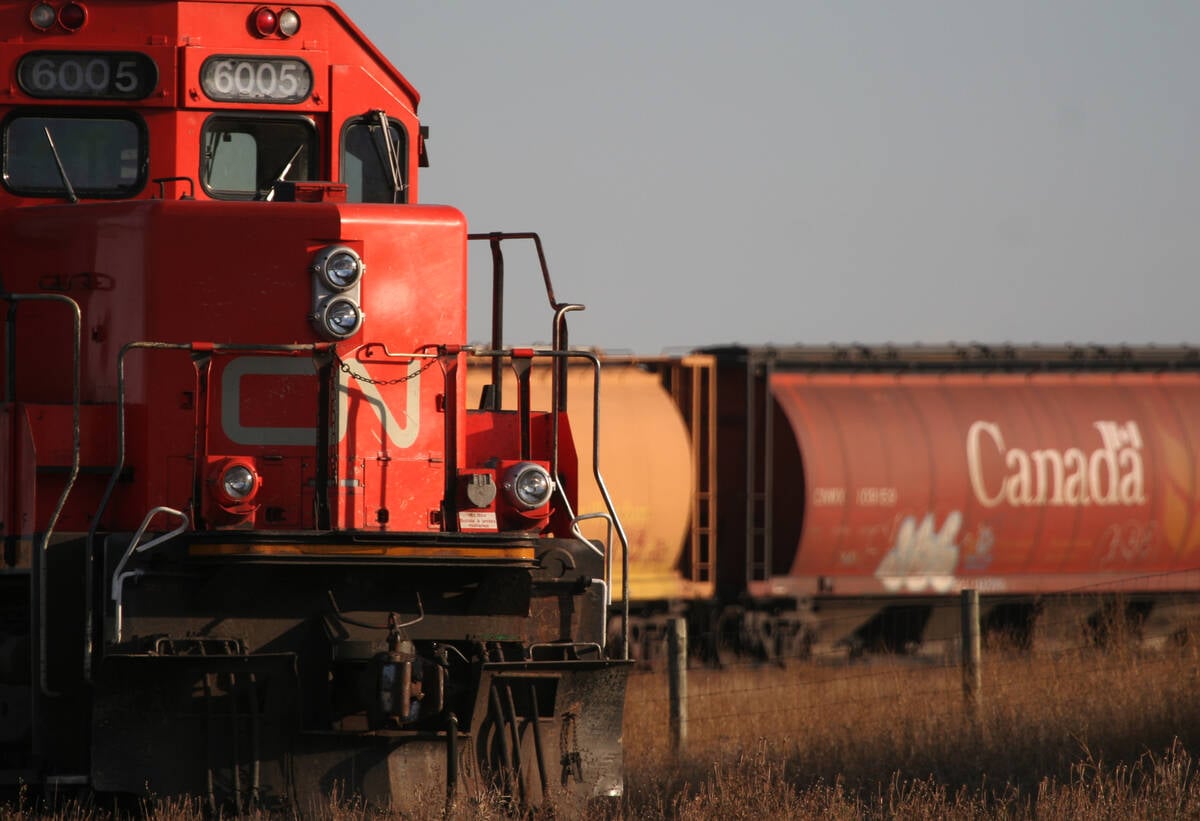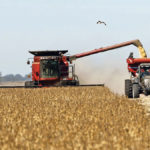Canola growers have left behind a golden age most never knew they were experiencing.
Already nostalgia is growing for the days when trade disputes were rare and specific, and the general assumption was that good quality products would be able to sell themselves out on world markets.
Now there’s a generalized friction grinding away inside the gears of international trade, leading it to slow down, become unreliable, and break down.
“The world of trading our products is becoming more complex,” Canola Council of Canada vice-president for corporate affairs, Brian Innes, told me in an interview.
Read Also

Working groups established to address challenges in the containerized and bulk movement of commodities
CN is working with the pulse and special crops sector on resolving challenges in shipping those commodities.
That’s why the canola council has unveiled a new version of its trade diversification strategy, something that updates the 2013 version, which was created in a time of ever-liberalizing world trade.
The mood has reversed.
“Governments are putting in regulations based on consumer pressure…. That’s the sort of protectionism that’s having the biggest impact on the market access issues that we’re having,” Innes said.
“We need to be proactive to prevent these things from creating risk and problems for us.”
The canola council wants the federal government to double down on heading off trade disputes, mostly by creating a battery of Asia-based trade officials who can work on technical levels to ease trade from Canada to Asian markets.
I’m sure many companies will be adding their own agents and hiring overseas representation to help lubricate the kind of sales that used to just glide through in the happy days of expanding trade.
But it’s not going to be as easy as it was, way back five years ago.
Just think of all the things that can now derail sales to foreign markets:
- Diplomatic disputes, as with China and Saudi Arabia.
- Chemical residue level traces, worries and testing requirements. These are growing in virtually all markets.
- Sustainability requirements — these are now demanded by many companies and even some government regulators.
- Carbon emissions restrictions — look for these to become a bigger and bigger element of globally traded products.
- Traceability — more and more retailers, marketers and processors require farm-to-plate record keeping, something which is only going to intensify in coming years.
- Requirements to fit in with the regulatory regimes of other countries, even when Canada’s are equivalent in terms of impact, or are even superior but different. This is the situation with some European Union regulations around meat today.
All in all, the world market has become a real pain in the butt for exporters, marketers, importers, regulators and the industries that rely upon importing or exporting products. It’s exactly the sort of trade friction and uncertainty that adds costs and that decades of liberalization work strove to reduce.
I’ve got to admit that it’s a dreary and disappointing situation, coming after such improvements, which saw western Canadian farmers finally able to get fair values out of world markets.
But let’s be positive about the situation, in a contrarian way. Sure, it’s much tougher now operating in globe-spanning supply chains, as Canadian crops, beef and pork do. But those difficulties hit everybody. Anybody who’s trying to hit the export markets is going to have to wrestle with these issues.
If it’s a pain for Canada’s advanced marketers, processors, merchants and farm production systems, imagine how challenging it will be for farmers from countries, sectors and farm systems that are less advanced.
It might be a pain in the butt to have to prove sustainability, to provide traceability, and to ensure there are no banned levels of chemical residues on crops, but Canada’s farming and marketing systems can do it.
For farmers in much of the world, that isn’t the case.
Some overseas demand will be depressed and destroyed by price increases caused by various regulatory and marketing complications, but one thing we’ve learned from the pandemic, the 2008-09 financial crisis and the Arab Spring and related food-price-sparked uprisings is that food demand is mostly immune to marginal price impacts. When food gets more expensive, people still buy it, and domestic providers will find ways to bring it in.
We can see some of that today with the robust sales to China of many Canadian agricultural commodities, despite Beijing’s blocking of some Canadian canola exporters. We see lots of Canadian canola flowing to Europe for biofuel feedstock, despite EU blockages on GM canola.
It’s not that all these restrictions, complications and hurdles won’t gum up trade. They will, and they’ll suck value away from everybody, from consumer to marketer to producer.
But some people will be able to handle that host of challenges, and may learn to revel in their ability to meet hard-to-meet demands because that’s where they’ll face little competition.
You can see this in the way some of the digital giants, like Facebook, seem OK about governments bringing in some sorts of regulations about various elements of their operations. They might actually be happier with tougher government requirements, if those are also imposed on weaker competitors, who presumably might not even be able to live up to the requirements. It could be just another way of pushing out the smaller players.
Canada’s agricultural export industries are world heavyweights in many commodities, even if our overall production is small by global standards. When it comes to exporting, our products are already hitting dozens of overseas markets and there is a wealth of experience and intellectual capital built up in our marketers, industries and governments.
Perhaps a tougher world trading environment, for all its annoyances, will leave Canada in a better situation than most.
It’s something Canada’s ag export industries, including those for most of the commodities that readers of this newspaper produce, might need to embrace because they don’t really have any other choice.
As farmer and long-time industry voice and leader Lee Moats said recently at the Canadian Crops Convention:
“Maybe that’s our competitive advantage, that we can use to make up for some of the disadvantages we have by being in the centre of a continent,” said Moats about all the increasing demands from consumers on farmers’ products.
“That’s the market need we need, maybe, to pull ourselves away from trying to compete with a least-cost producer (from another exporting nation) to competing on a whole different level.”
Since farmers appear to have little choice about it, it would be best to make it a virtue.
















